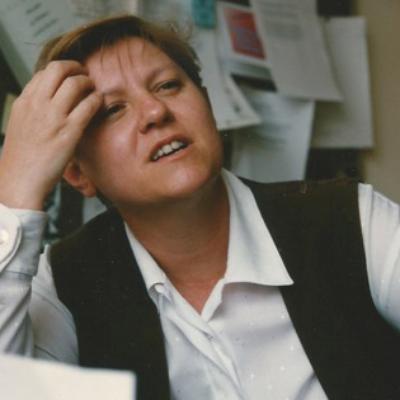 Certificate in Media and Digital
Certificate in Media and Digital
Policy in Africa
In honour of Jeanette Minnie (1955-2016)
This online programme, consisting of two 4-week courses and developed to honour the life and work of the late South African activist Jeanette Minnie, is being offered on the StellenboschX edX platform with support from the Namibia Media Trust. For full details, go to programme page.
Enrol here.
Entitled "Freedom of Expression in the African Media and Digital Policy Landscape", the first course explores freedom of expression, access to information, and online freedoms in Africa, considering disinformation and issues with internet companies’ models. It addresses: the impact of artificial intelligence (AI) on media and journalism; colonial legacies and neo-colonial control of communications for political repression; and civil society's role in achieving change. The course also explores means for transformation of inhibiting policies and practices in order to enable expanded communication freedom.
The second course is entitled "Governance and Regulation, Access to Information, and Media Viability".
This programme draws on content from an earlier course honouring Jeanette Minnie, offered by the LINK Centre between 2018 and 2021 on the WitsX platform, with course delivery by LINK Honorary Adjunct Prof. Justine Limpitlaw in cooperation with other African media policy experts. Go to 2018-21 course info.
 About Jeanette Minnie
About Jeanette Minnie
Jeanette Minnie (pictured right), who passed away in George, South Africa, on 2 November 2016, was a leading media activist during her career. Minnie was a maker of history in the realm of freedom of expression and press freedom in southern Africa. She succeeded in building alliances and organisations, starting in the 1990s in South Africa and then working across Southern Africa.
Minnie's work showed the value of civil society and media personnel in impacting on state policy, law and administrative action in the interests of freedom, pluralism and independence for media. This online programme follows within, and helps to sustain, this tradition of promoting the value of bottom-up contributions to African media policymaking and implementation.


